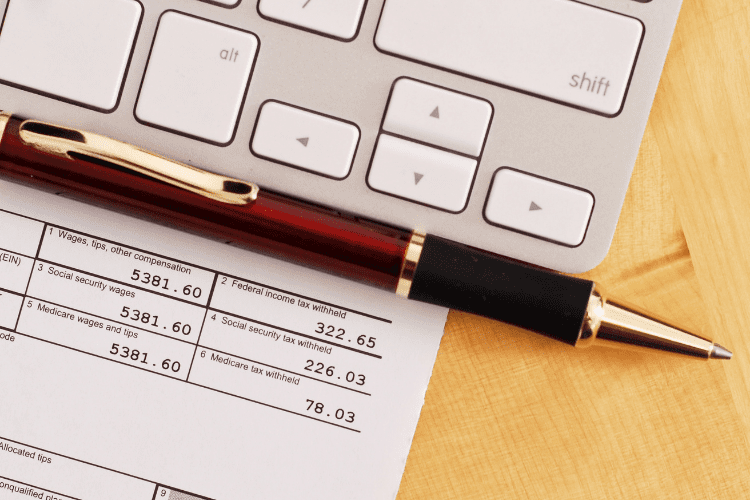Should You Do Your Own Taxes?

If tax season fills you with a sense of dread and keeps you reaching for the Tums, you’re not alone. Filing taxes can be a stressful, confusing task, which is precisely why many certified tax professionals are eager to help overwhelmed taxpayers each April. Tax day is Tuesday, April 18th this year, not April 15th like usual; it’s time to prepare your 2022 tax returns!
Should you fork over the money to have an expert handle your tax return, or should you file your own tax return for free? Don’t make such an important decision impulsively. Use these tips and guidelines to determine whether you should take the fate of your taxes into your own hands this year.
When Does It Make Sense to Do Your Own Taxes?
If your tax obligations are relatively simple and your income is clear-cut, it could make sense to file your own taxes. Most experts recommend that you only do your own taxes if you meet these four qualifications:
- You have the time and patience to spend up to seven hours gathering forms and preparing your tax return.
- Your tax situation is straightforward (i.e., no dependents, complex investments, or significant assets).
- You feel comfortable navigating business-related tax forms and software if you own a business or are self-employed.
- You’re confident in taking control over your taxes and don’t mind fixing errors or looking up questions on the IRS website.
The IRS even offers a free filing portal for taxpayers with an adjusted gross income (AGI) under $73,000. This portal lists ten qualified tax preparers who offer free federal filing services. If you’d still like to file your own taxes, but you make more than $73,000 a year, you may need the assistance of an online tax software such as TurboTax, H&R Block, OR 1040.com.
Which Tax Softwares Are The Best?
Even if you’re not a tax aficionado, you’ve probably heard of TurboTax. This platform offers deluxe, premium, and self-employed online filing, with federal return fees ranging from simple “do it yourself” for $0 and up to $120 for more complex tax situations. If you’re looking for more assistance, you can buy TurboTax Live and gain instant access to tax experts who can give you instructions, review your tax return for accuracy before submission, or file your whole tax return for you.
H&R Block is TurboTax’s biggest competitor and is also less expensive. H&R Block offers a free edition that allows you to file both your federal and state tax returns at no cost, regardless of your income. If you need to itemize, or if you’re a homeowner, freelancer, or business owner, you may not be able to utilize H&R Block’s free edition. Instead, H&R block offers a Pro option where you can file with a tax expert starting at $85.
If you don’t make your income on a W-2 basis, 1040.com may be a better tax software option. This online tax service charges one low flat fee of $25, which means you won’t be penalized for reporting self-employment income, business income, estate or trust income, or foreign-earned income.
When You Should Get a Tax Expert
The rise in user-friendly, sophisticated tax software has undoubtedly made it easier to file your own taxes, but some situations call for the help of an expert. Consider hiring a tax preparer to file your taxes if you fall into any of these categories:
- You don’t have the time or patience for attention to detail with your taxes.
- Your tax situation, including dependents, investments, charitable contributions, or a business, is complicated.
- You’re planning to itemize your deductions.
- You experienced a significant life change last year.
Tax professionals are tax lawyers, CPAs, and enrolled IRS agents who understand the precise complexities of taxes and are certified to handle any tax situation. Depending on the state of your finances, it may very well be worth the $150 or $200 to take the burden of filing taxes off your shoulders. Oh, and for those who might need a little extra time to file your taxes this year, click the link here to learn how to file for an extension.
Read More: What Happens If You Don’t File Your Taxes?










